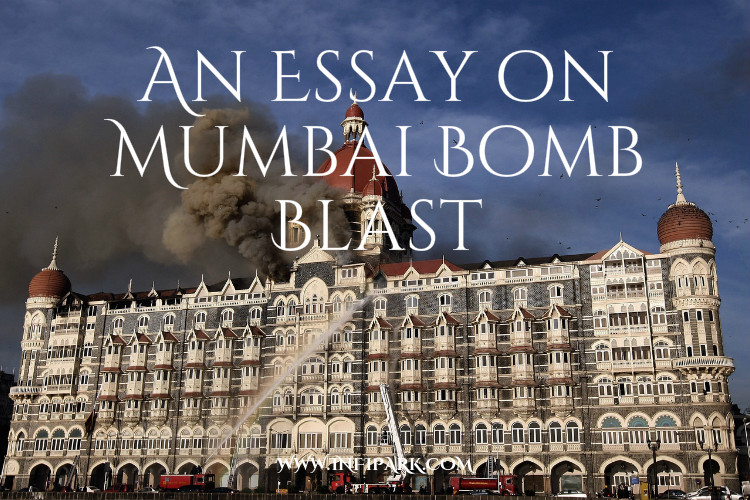Mumbai, the business capital of India was once again rocked by serial blasts on July 11, 2006. There were 8 explosions in 8 local trains between 6.20 and 6.35 p.m. resulting in 190 causalities and more than 600 injured. After the 1993 serial blasts this was the severest terrorist attack in the country. There were eight explosions within 12 minutes between 6.21 and 6.33 in the local trains and railway stations. The first blast occurred at Kher o a train bound for Boriwali fram Churchgate between Santacruz and Kher station. All the explosions took place in first class compartments at a time when most of the service class people return home. All trains on the Western line route were suspended. A blast rocked Boriwali bound train in first class compartment. Blasts occurred at Meera Road, Jogeshwari, Bandra, Mahim and Matunga.
All local phones including mobile service in the city were jammed probably due to the congestion in the system as anxious people tried to contact their beloveds. All the injured persons were removed to the nearby hospitals and doctors took no time to attend them. Police cordoned off all railway stations on the western line and strict frisking and checkup was carried out at the central and harbour stations of local trains.
Mumbai police suspect the RDX may have been used in the serial blasts that claimed the lives of at least 190 persons injuring another 600 people or more. Samples from the blast hit trains have been sent for forensic examination and it would take some time to reach a definite conclusion. But there is probability that compacted low intensity explosive might have been used. It is, however, believed that there was a definite pattern in blasts and the entire operation was executed with great precession. The possibility of the involvement of Lashkar-e-Taiba cannot be ruled out although the militant outfit has been quite prompt to deny its involvement. Keeping in view the modules operandi of the blast LeT could also be involved in the act of terrorism. Maharashtra police is investigating very seriously while the Intelligence Bureau is following its own path. Some political personalities are under police scanner for their suspicious action and action may be taken against them at appropriate time.
Preliminary investigations reveal that the explosions were probably timed for 6.15 p.m and the devices might have been loaded at Churchgate station. Explosive detection equipment, stricter access control and other measures have been put in place at all airports across the country. All vital and prime economic institutions as also religious and historical monuments have been brought under security all over the country. Quick reaction teams of Para-military forces have been deployed at strategic points.
Following the serial terrorist blasts in Mumbai there was an unprecedented outrage and revulsion among the American political, diplomatic, business and financial community including American president George W. Bush. Expression of anger at the terrorist attack and support and solidarity for India came from the highest level of the Government, Congress and financial sector as the event of Mumbai of 11th July closely resounded with America’s incidence of 11th September. As the gravity of the serial blasts was realized Mr. Bush on his tour in the Middle East issued a statement condemning in the strongest terms these atrocities and pledging to stand by India.
United Nations General Secretary Kofi Annan said that he was “appalled by the brutal and callous bombings.” Russian president Vlademir Putin asserted that “this unscrupulous and monstrous crime can never be justified.” Messages of condemnation poured in from Britain, China, Japan, Eastern Europe, Australia, Bangladesh, New Zeeland and Sri Lanka. In the words of Mr. Bush “such acts only strengthen the resolve of the international community to stand united against terrorism and to declare unequivocally that there is no justification of the vicious murder of innocent people.”
The failure of intelligence agencies in preventing July 11 serial bomb blasts in Mumbai may be regarded as one of the weak areas in India’s anti-terrorism efforts. But the incidious role played by “sleeper cells” in the country deserves keen attention. A sleeper cell consists of people who are silently providing logical support to terrorists while residing and working as ordinary citizens. Such elements are for more dangerous than the terrorists themselves because it is with the help and guidance of the so called “sleeper cells” that the terrorists suocced in their unscrupulous endeavours.
India’s democratic solidarity and the most prominent features of unity in divisity is always there to the disappointment of such terrorist aims. The nation as a whole stands as one unity against such terrorist activities. Left parties condemning July 11 terrorist attack cancelled the first phase of their week long nationwide stir against price hike in view of the first phase of their week long nationwide stir against price hike in view of the Mumbai blasts and called upon the UPA to take all steps to eliminate terror network. Opposition leader Mr. L. K. Adwani declined to criticize the government in wake of the Mumbai blasts. He said, “it is no time for criticizing the government. The Raj and praja must unitedly face the challenge before us.” He further added, “ It is entirely within the ambit of responsibility of the government of India and Maharashtra government to demolish terrorist modules operating within the country.”
Within less then 24 hours after the serial blasts rocked Mumbai, life in the city returned to normal. Train services resumed and schools and colleges remained open. The station scenes of July 11 gruesome terrorist attack were bustling with the commuters. Even though the whole of Maharashtra remained on red alert and tight security prevailed at air port and railway stations, educational institutions and offices were working as usual. The city witnessed a spate of visitors including congress chief Mrs. Sonia Gandhi, railway minister Lalu Prasad, home minister Shivraj patil and L.K. Adwani leader of opposition. Lalu announced a compensation of Rs. 5 Lakh and a job to the next offkin of the deceased. Mr. Patil told reporters that the centre has announced Rs. 50,000 to each injured.
The Government is now to respond in three ways. First, it has to apprehend and punish those responsible for conceiving and executing the crime and root out terror modules. Second, it must stand fast against any attempts at staking communal hatred and violence all over the country. Third, it may be time to take up the issue of wide spread terrorist attack in Indian cities with Islamabad. As a part of the Islamabad accord signed in 2006, General Musharraf solemly committed to ending use of Pakistan territory by terror groups. Hence Islamabad may be told that if gruecsome attacks like 11th July continue, these might place intolerable strain on the peace process. New Delhi must join Kabul in demanding that Islamabad gets serious and make some visible moves in closing down terror groups and their training camps and arrest their leaders.













